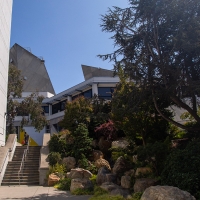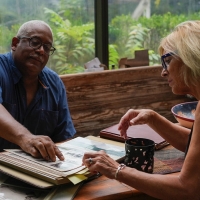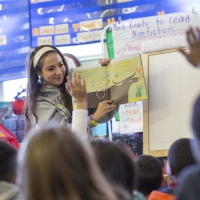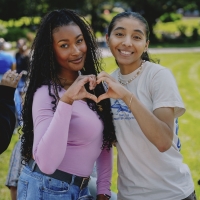Alumna’s authentic curiosity leads to science podcasting success
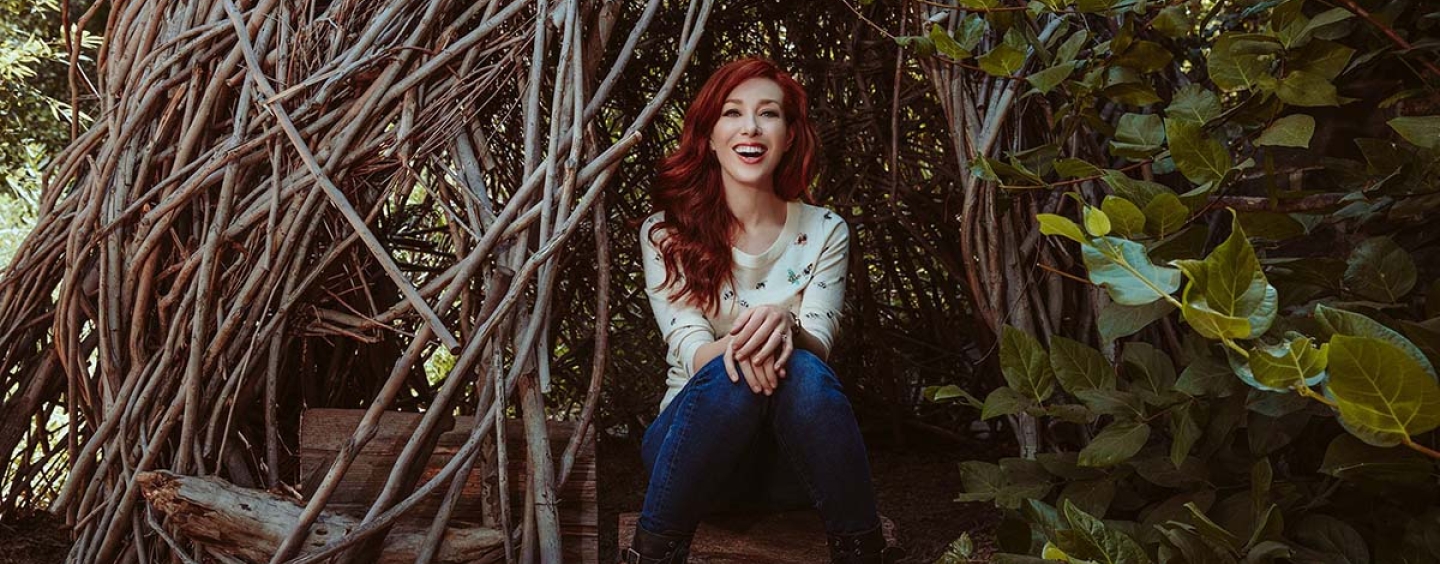
Alie Ward was unhappy with her career until her love for the sometimes grubby natural world opened new doors
Science communicator Alie Ward (B.A., ’99) has unique advice for anyone starting a new career: “Get in like a cockroach.”
“Don’t wait to be invited in like a vampire,” said Ward, the host of “Ologies,” an award-winning popular science podcast, and a Daytime Emmy Award-winning science correspondent for CBS’s “The Henry Ford’s Innovation Nation with Mo Rocca.” “Get under cracks and doors.”
Ward says that can include repeatedly sending cold emails, volunteering, asking questions, being authentic and weird, and generally being persistent.
While emulating roaches might not be common career advice, it’s paid off for Ward, who followed a winding road in her journey to science podcasting. (She also points out that despite their bad rep, cockroaches are fastidious, resourceful and humble.)
“It took me until my late thirties to really find science communication as a goal. I didn’t even know that you could do it,” she explained. Instead, she spent many of her early years debating whether she should follow her passion for science or her love of arts and entertainment.
Initially, she leaned into science by becoming a Biology student at the University of California, Santa Barbara. After a year, she transferred to a community college, largely due to affordability, and then transferred to San Francisco State University to finish her undergraduate career as a Cinema major.
“I loved science, but I was also really missing the arts aspect. I thought maybe I would go into science illustration, but I was missing performance and writing and humor,” Ward said. She hoped she’d eventually find a way to combine science with film. “I wasn’t quite sure how it was going to pan out but I did it anyway.”
After participating in dozens of student films and building an entertainment-focused network, Ward got an agent, relocated to Los Angeles and moved further away from science. After acting for a few years, she worked as an illustrator for LA Weekly, a writer/editor for The Los Angeles Times and even a culinary TV personality with the Cooking Channel. She’d sprinkle in science when she could, but she no longer felt authentic, and she became increasingly dissatisfied with her career path.
Yet through all of this, one thing remained consistent: Ward’s lifelong fascination with bugs. She began posting about them on social media simply for the joy of it and caught the eye of Lila Higgins, an entomologist at the Natural History Museum of Los Angeles County. Higgins invited Ward to the museum for a behind-the-scenes tour and encouraged Ward to volunteer. Ward listened. Volunteering — something she did purely for fun — helped Ward feel like herself and led to her becoming a science correspondent for CBS.
“I love science. Yes, I also love TV and film. Yes, I also love being on [‘The Henry Ford’s Innovation Nation with Mo Rocca’]. You know what’d be a little bit better? If they had to do less with tech and more with biology,” Ward said. “You just start to whittle down what’s really at the root of what you love and who you are.”
In 2017, nearly 20 years after she pursued science at school, she launched her podcast “Ologies.” It now ranks consistently among the top science podcasts on Apple Podcasts. Each week, Ward chats with an expert about their field and their passions, unafraid to ask seemingly silly questions she knows she and her listeners have.
The conversations are led by her guest’s passion and Ward’s curiosity. She didn’t want expert sound bites that lacked any personal depth. She adds “asides” in her voice to provide necessary explanations or context. She realized she could also provide little “brain breaks” in the form of tangents, like one about wicker furniture in the middle of a conversation about molecular biology.
She also keeps in the occasional expletive — though she agonized over whether she wanted her podcast marked by a little “E” for explicit. None of the other top science podcasts had an “E.” But eventually she decided to opt for personal authenticity over phony decorum.
“If everyone’s shaving off parts of themselves to make this smooth surface, then the smooth surfaces look identical to each other. Then where’s your impact? Where’s your voice?” she asked. “Being gravely weird can sometimes be the most comforting thing. I would rather have a hundred people like my authentic self than a thousand people like a façade.”
Tags
